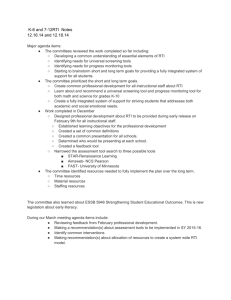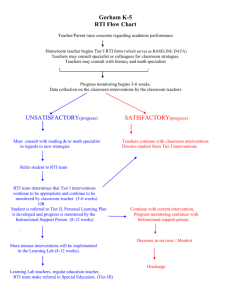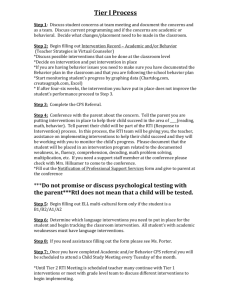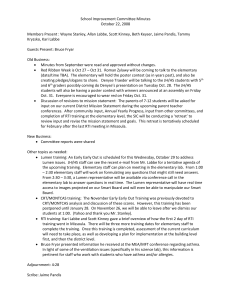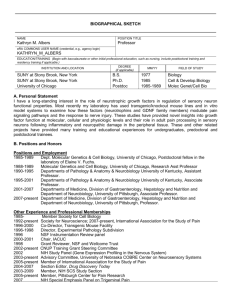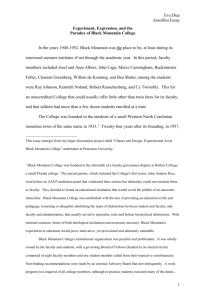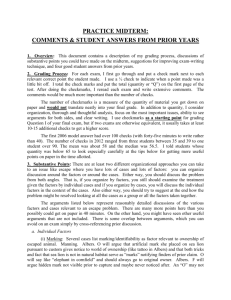Local Teachers Tackle Intervention Programs at Comprehensive In
advertisement
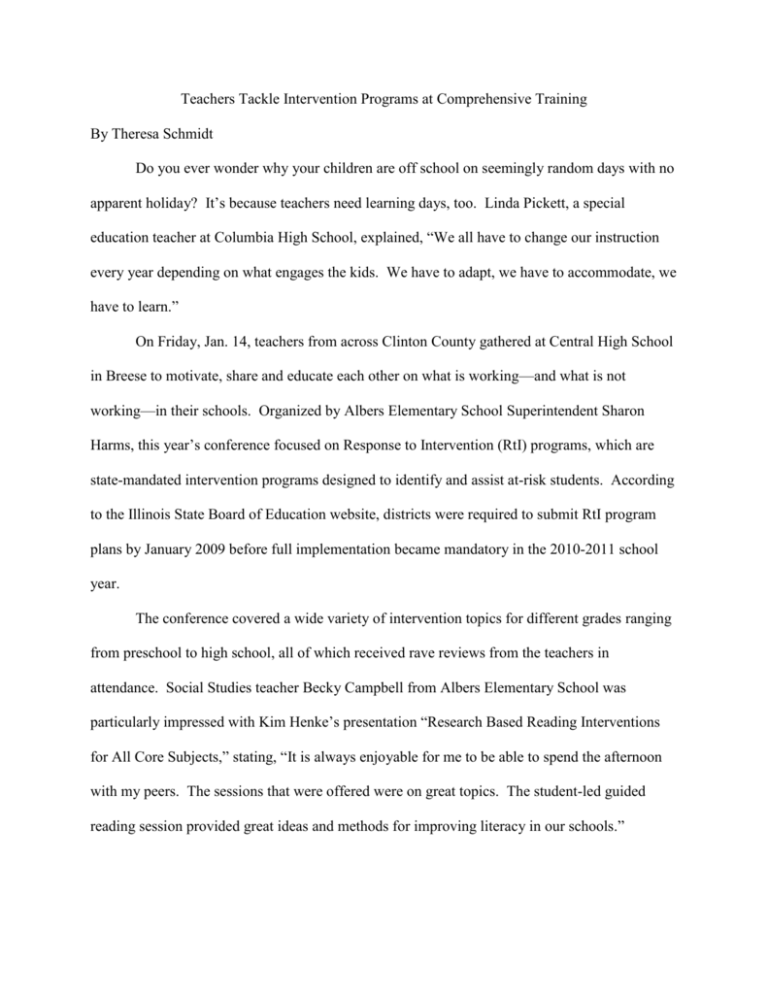
Teachers Tackle Intervention Programs at Comprehensive Training By Theresa Schmidt Do you ever wonder why your children are off school on seemingly random days with no apparent holiday? It’s because teachers need learning days, too. Linda Pickett, a special education teacher at Columbia High School, explained, “We all have to change our instruction every year depending on what engages the kids. We have to adapt, we have to accommodate, we have to learn.” On Friday, Jan. 14, teachers from across Clinton County gathered at Central High School in Breese to motivate, share and educate each other on what is working—and what is not working—in their schools. Organized by Albers Elementary School Superintendent Sharon Harms, this year’s conference focused on Response to Intervention (RtI) programs, which are state-mandated intervention programs designed to identify and assist at-risk students. According to the Illinois State Board of Education website, districts were required to submit RtI program plans by January 2009 before full implementation became mandatory in the 2010-2011 school year. The conference covered a wide variety of intervention topics for different grades ranging from preschool to high school, all of which received rave reviews from the teachers in attendance. Social Studies teacher Becky Campbell from Albers Elementary School was particularly impressed with Kim Henke’s presentation “Research Based Reading Interventions for All Core Subjects,” stating, “It is always enjoyable for me to be able to spend the afternoon with my peers. The sessions that were offered were on great topics. The student-led guided reading session provided great ideas and methods for improving literacy in our schools.” Penny Angeli, a fifth grade teacher at Albers Elementary School, thoroughly enjoyed Kathi Rhodus’ presentation entitled “Five Interventions: Vocabulary, note-taking, processing strategy, think-pair-share-write and exit cards/door passes.” Angeli noted, “It was very informative and the presenter offered practical and relevant information that can be used immediately in the classroom.” Harms has found most teachers had similar reactions to the conference. She commented, “I thought it was wonderful. I’ve had a lot of very positive comments, not only from administrators but from speakers and Clinton County teachers. I personally feel that all the teachers who went to it came back excited. Excited about learning something new. Get them some simple things that they can take back and feel like they made a difference immediately.” While implementation of a Response to Intervention program is mandatory, the state does allow school districts some flexibility in experimenting with what types of programs are most effective at a particular school. Perhaps the day’s most interesting presentation was a questionand-answer style Interventions Panel featuring teachers, superintendents and psychiatrists from area schools with successful or unique RtI initiatives. From the ZAP (Zeros Aren’t Permitted) policy at Columbia schools to Salem High School’s credit-based recovery program, these teachers are thinking outside-of-the-box to keep kids involved and interested in education. Jennifer Garrison, Superintendent of Sandoval School District, stated, “I think you have to look at where you’re at and what’s working.” Hattie Doyle, Curriculum Coordinator at Waterloo School District, agreed, “Are we engaging our kids in the right way or do we have a lot of downtime?” Pat Hellmann, a school psychologist for the Kaskaskia Special Education District, was pleased with the experience, “It went well; it was very positive. I think that the information sharing among colleagues is wonderful, very beneficial. Overall, the teachers are learning.” And where the teachers are learning, the students are sure to be as well. For more information about Illinois’ Response to Intervention initiative, visit www.isbe.net/RtI_plan or contact your local school district.
